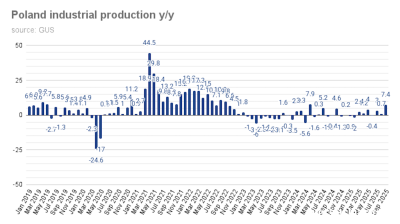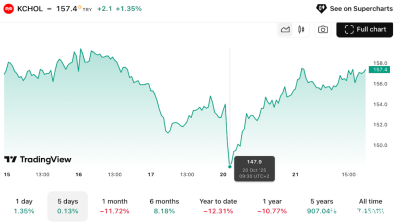The Turkish central bank has increased its reserve requirement ratios for FX deposits by 200bp for all maturities to support financial stability, it said on May 27 in a written statement.
The effect of the move will be the withdrawal of $4.2bn of forex liquidity from the market in favour of boosting the central bank’s coffers. Markets are nervous that the regulator is scrambling to have the ammunition to defend the battered Turkish lira (TRY) ahead of the controversial Istanbul election revote, scheduled for June 23, which will be seen as a key test of the durability of the Erdogan administration.
On May 9, the central bank employed previous changes in its reserve requirement mechanism that resulted in a net withdrawal of $200mn and TRY7.2bn from the market. It also brought in a new swap on May 9 that allows it to bolster its international reserves by borrowing gold from commercial lenders.
The reserve requirement ratio for FX deposits with maturities of up to 1-year rose to 13% as of May 3 from 12% while the ratio for maturities longer than one-year increased to 9% from 8%, according to central bank data.
Despite the latest central bank move, the Turkish lira (TRY) was down by 0.47% d/d against the dollar to 6.0530 as of 16:10 local time on May 27.
Net reserves fell to minus
The central bank’s gross FX reserves fell to $71.7bn as of May 17 from $73bn the previous week, while its gross gold reserves rose to $20.72bn from $20.66bn, according to the latest data from the authority. bne IntelliNews calculations showed that the national lender’s net foreign currency reserves, excluding the amount raised via short-term FX swaps with local lenders, fell to minus $867mn as of May 17 from plus $1.33bn seven days previously.
Total international reserves amounted to $92.5bn.
The central bank has persistently avoided calls from the markets to transparently provide details of recent developments in its FX reserves. It thus requires outside data mining to assess the actual situation.
Following last summer’s currency crisis and fears that a repeat could be on the way, dollarisation rates in Turkey have been running at record levels and nervous deposit holders have been looking for answers as to whether their dollars held in domestic banks are in safe hands.
Data

Hungary’s central bank leaves rates unchanged
National Bank of Hungary expects inflation to fall back into the tolerance band by early 2026, with the 3% target sustainably achievable in early 2027 under the current strict policy settings.

Germany slowdown weighs on Lithuania’s export-driven manufacturing sector
Lithuania’s economy remains highly sensitive to the industrial cycle in Germany, its third largest trade partner.

Chobani yoghurt king Hamdi Ulukaya becomes richest Turk
Knocks Murat Ulker into second place in Forbes ranking as his company's valuation leaps to $20bn.



